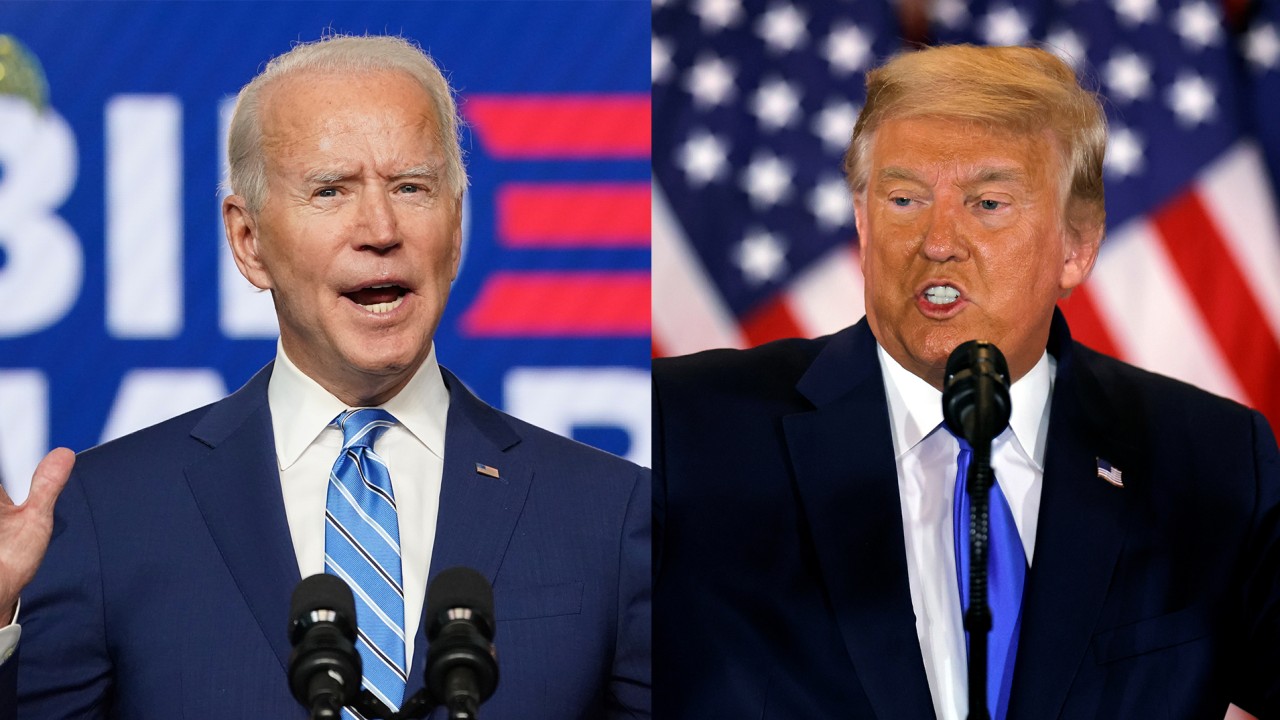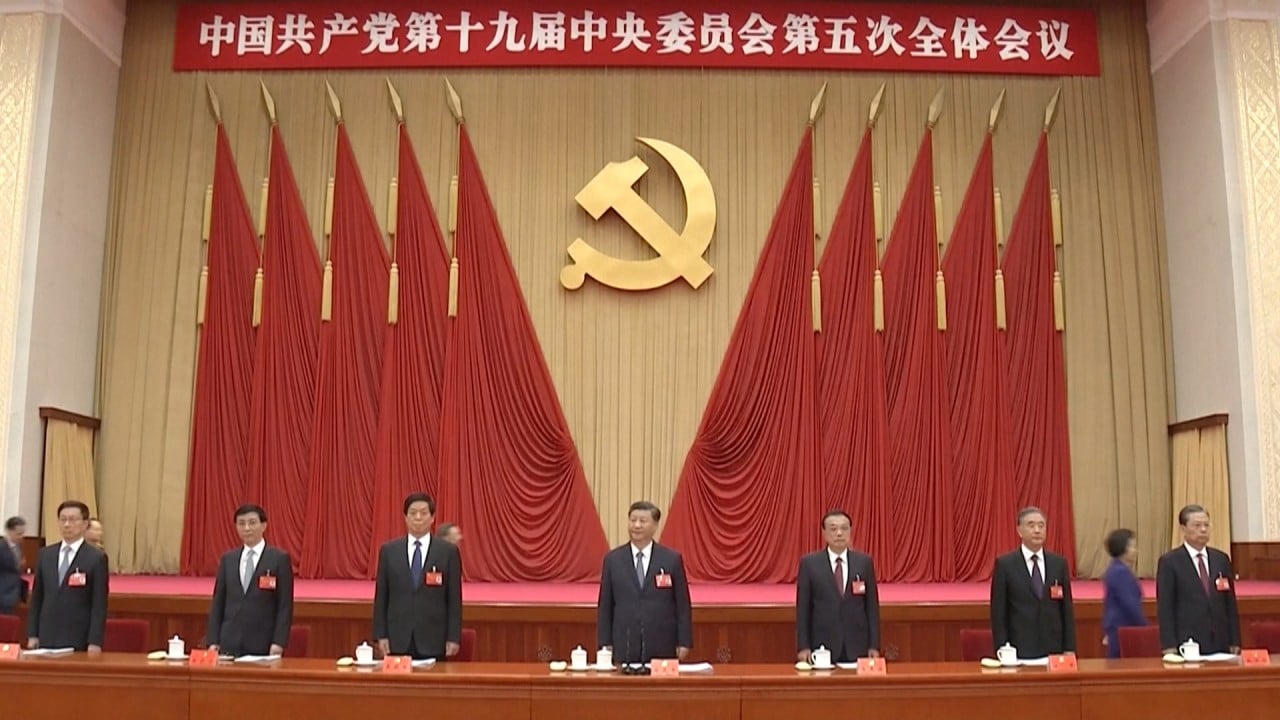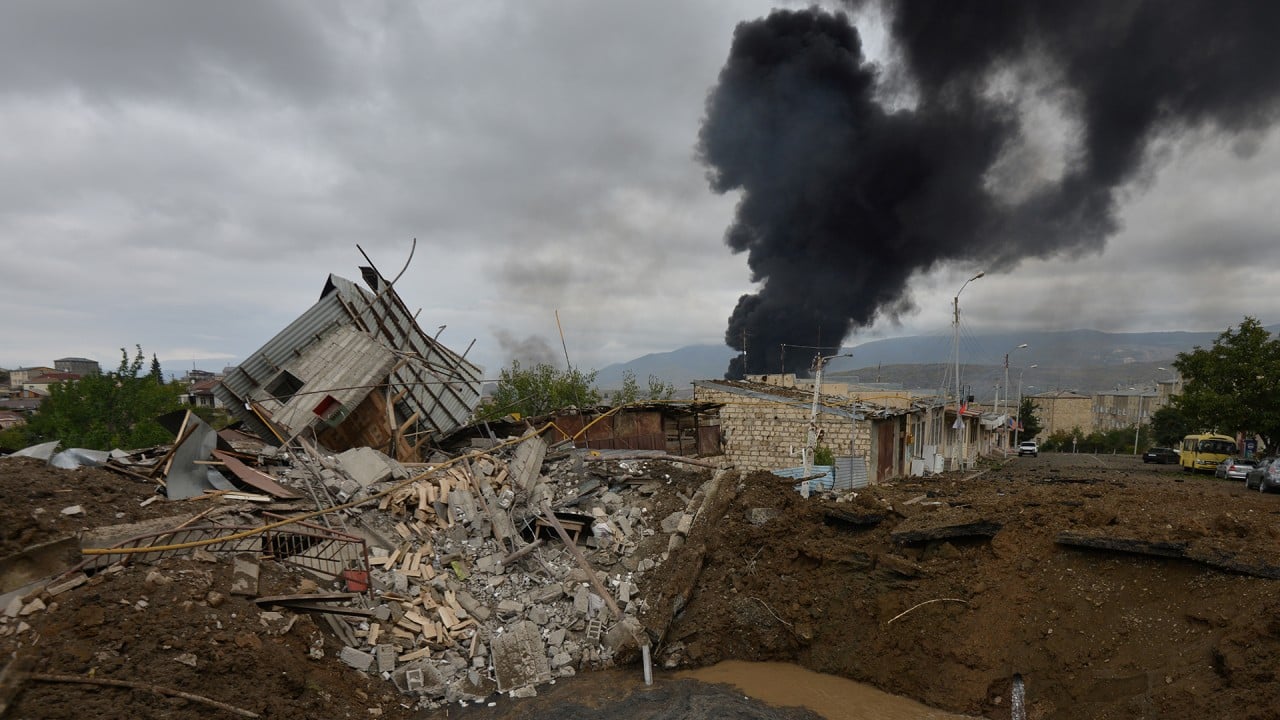
Fractious US election heralds more chaos in a deeply polarised world
- The close-call election signals a slim mandate for the new president, leaving a weaker America to face mounting global challenges
- The struggle between polarised and fractured factions within nations and between nations is only just beginning
American voters have made their choice. But the margins are so narrow that we will only know who has won the US presidency after all the mail-in ballots have been counted. Donald Trump has already tweeted “stop the count” and legal challenges have been mounted.
Stalwart Republican Senator Lindsay Graham and Senate Majority Leader Mitch McConnell comfortably held their seats and continue to control the Senate. The Republican right is far more entrenched than expected.

08:46
2020 US presidential election: protests grow as ballot count drags on in battleground states
If Biden loses by legal challenge or recounts, it would be the second time in a row that Democrats had won the popular vote but lost the electoral college. The convoluted laws governing counting are different for each state, leaving narrow margins subject to legal challenge.
In theory, the trinity of the executive, judiciary and legislature provide the checks and balance for electoral fairness. But if the Supreme Court, Senate and state governments are controlled by Republicans, a Democrat president will have trouble getting executive decisions through, even with an electoral majority, as former presidents Barack Obama and Bill Clinton found.
Most non-Americans are puzzled that Trump, despite mishandling a pandemic that has killed more than 240,000 Americans, has expanded his voter base. The pollsters failed to track how Trump showed courage in rallying his supporters to campaign house to house to win new voters, despite the infection risks. Trump was clearly able to mobilise his supporters’ anger to vote in person.
Trump instinctively understands that electoral politics is about gut and emotions, and he appealed with his blood-and-guts push for change from Democratic liberal policies that herald a return to Obama-style normalcy. The benchmark model for democratic elections has now descended into banana-republic-style accusations of vote fraud and election-rigging.

08:48
US presidential election 2020: legal challenges as momentum shifts from Trump to Biden
Given the narrow margin, the transition to next January, when the new president is sworn in, will be fraught with legal challenges and uncertainties. Trump remains in charge for another 2½ months (at least) as coronavirus infections in the US accelerate to more than 100,000 cases a day and the daily death rate crosses 1,000 – the damage to the economy is done.
The new president is likely to spend all his energy in 2021 fighting a pandemic that is still raging almost everywhere, except in East Asia.
The election has only confirmed that the US is a seriously polarised power trying to manage its leadership of a multipolar, multi-power world. The traditional view is that the US president has more power to conduct foreign policy than domestic policy, because of the internal checks and balances. But a weak domestic consensus damages his foreign policy options.
First, the pandemic shock has narrowed the economic gap between the US and China. US gross domestic product is expected to fall by 4.3 per cent this year, to US$20.3 trillion, while China’s GDP is expected to grow by 1.9 per cent, to US$15.2 trillion – bringing the gap down to US$5.1 trillion.
Second, with everywhere else struggling to control the coronavirus, the remaining growth region is East Asia, which is closely networked with China’s global supply chain.

03:05
What happened at the Chinese Communist Party’s major policy meeting, the fifth plenum?

03:23
Azerbaijan and Armenia accuse each other of targeting cities outside conflict zones
All in all, the global roller coaster ride, with Trump at the helm since 2016, will not end with the November 2020 elections. If anything, amid the pandemic, there will be more twists and turns.
With his weakened mandate, Trump would be more willing to take even bigger gambits when the chips are down, whereas Biden may struggle to deal with the mess he inherits. All the US elections have shown is that the struggle between polarised and fractured factions within nations and between nations is only just beginning.
Many of us had hoped for a return to quieter times. But the beginning of the 2020s has shown that we are spiralling in unpredictable directions. Buckle up for tougher times.
Andrew Sheng is a former central banker and financial regulator. The views expressed here are entirely his own

